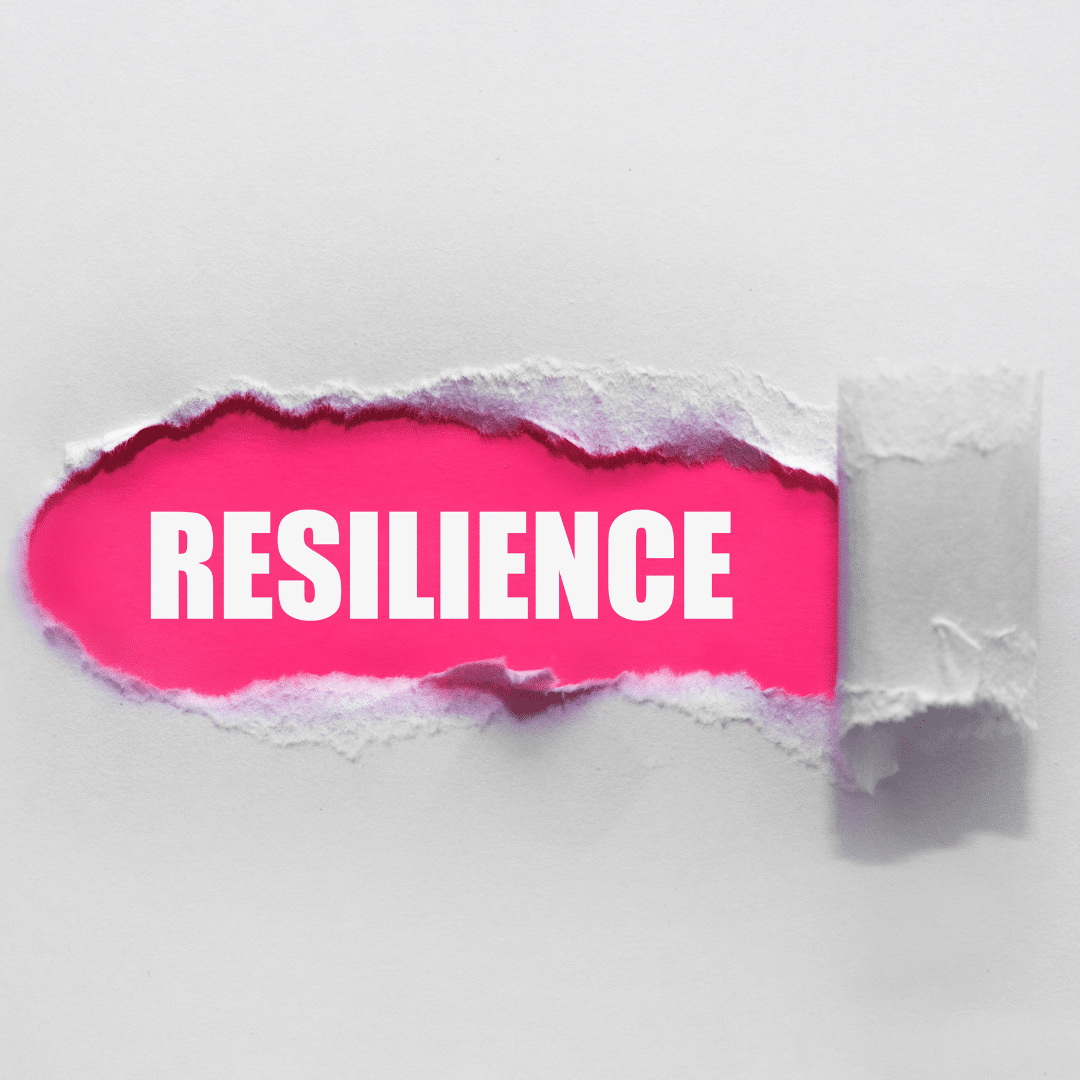04 May 2023
Why resilience isn't a dirty word
Resilience - a powerful tool for overcoming adversity, or a way to shift blame onto individuals? Sarah Harris, Managing Director of The Wellbeing Project, cuts through the noise and shares her take on what resilience really means and why we could all benefit from having more of it.
Resilience: the talk of the town
Aside from the fact that it has been overused to the point of becoming a misunderstood buzzword, there has been growing concern about the emphasis on resilience. Many people fear that it is being used to point the finger at individuals and avoid addressing the larger structural and systemic factors at play.
I understand the pushback. Recovering from adversity can be emotionally and physically draining and if resilience is just about toughening up, it overshadows the need for creating supportive work environments. Might unscrupulous employers use it as a way to justify harmful practices or policies, or to sweep the effects of trauma and systemic oppression under the carpet?
But what does resilience actually mean? I want to look deeper, and challenge some of these assumptions and commonly held beliefs to see what resilience is actually about.
Resilience for individuals
For individuals, developing resilience can mean the difference between getting weighed down by life’s challenges, or emerging from them stronger and more capable than before. Resilient people cope with stressful or traumatic events in a way that promotes recovery and healing. Rather than toughening up, they develop a sense of their own inner strength and the knowledge that they have control.
By developing effective coping strategies and a resilient mindset, we can navigate and manage the everyday stressors of life. In a work setting, it can also help us to stay motivated and focused on achieving personal goals, even in the face of setbacks and obstacles.
Of course, resilience isn’t always easy to develop or maintain. Being resilient isn’t about overlooking this pain, it’s about understanding that you’ll come through it, learn from it, and keep going.
Resilience for organisations
Resilience for organisations is about adapting to changing market conditions, technological advances, and other external pressures, by quickly identifying and addressing emerging challenges. Much of this is down to a company’s leaders and the environment they create. A truly resilient organisation fosters a culture of innovation and growth by encouraging experimentation, risk-taking, and continuous learning. And this must be both encouraged, and role modelled at leadership level.
Organisations also have a role to play in supporting the resilience of their workforce. This starts with:
- promoting positive relationships and social support
- encouraging healthy behaviours
- offering training and education on coping skills and stress management
- creating a culture of psychological safety and openness
- promoting flexible work arrangements
- encouraging collaboration and teamwork
For your leaders, it’s about good role modelling and leading by example. Resilience is contagious! When we see someone else handling a difficult situation with grace and strength, it can inspire us to do the same. Resilience is not only good for you, it can also have a positive ripple effect on those around you.
A rose by any other name
While resilience is still important in many contexts, there has been growing interest in exploring other related concepts that can complement and expand upon the idea of resilience. Here are a few examples:
- Wellbeing: This concept focuses on the promotion of positive mental, physical, and emotional health. It has gained popularity as a way to shift the focus from simply “bouncing back” to promoting overall well-being and thriving.
- Anti-fragility: This term, coined by author Nassim Nicholas Taleb, suggests that resilience isn’t a fixed quality. Systems and individuals can actually benefit from stress and challenges, becoming stronger and more adaptable over time. It’s a really interesting concept to explore and can help us shift our perspective on how we view stress and challenges.
- Trauma-informed care: This approach is about recognising the impact of trauma on individuals and communities, and creating environments that promote healing and recovery. It’s an important concept to explore, especially given the prevalence of trauma in our society. Managers would benefit from a level of understanding as they work to create a healthy and psychologically safe environment for their team.
- Equity and justice: It’s becoming increasingly clear that we need to address systemic barriers and promote equity and justice if we want to create conditions that foster resilience and wellbeing for all individuals and communities. This is a critical concept to explore if we want to build a better future for everyone.
By integrating these interrelated concepts into our concept of resilience, we can deepen our understanding of what individuals and communities need to thrive.
Resilience isn’t a dirty word
There’s no denying that resilience is a complex and multi-faceted concept that has sparked some intense debate in recent years. Whilst I understand the scepticism, I am tempted to suggest that much of it comes down to semantics. Resilience has a lot to offer when it comes to navigating the steady flow of ups and downs. After all, being able to adapt and grow in the face of challenges is a vital life skill.
Of course, we can’t just ignore the criticisms that have been raised. It’s true that resilience can sometimes be used to place too much responsibility on individuals to “bounce back” without taking into account larger systemic factors that contribute to adversity. That’s a real concern that needs to be addressed.
So, where does that leave us? Well, one thing is clear – we need to keep exploring and learning. There are a lot of related concepts out there that can help us build a more complete picture of what it means to thrive in the face of adversity. By continuing to expand our understanding of these ideas, we can create more supportive and inclusive environments that benefit everyone.
The concept of resilience can be a powerful and uplifting tool for navigating life’s ups and downs. When approached with compassion and sensitivity, resilience can be a real game-changer when it comes to adapting, as well as promoting growth and learning in the face of challenges, at both individual and organisational level.
About the author
SARAH HARRIS is the Managing Director at The Wellbeing Project. She leads The Wellbeing Project’s strategic vision. She combines strong commercial management experience with a deep understanding of wellbeing to bring our vision to life.
Sarah has a deep understanding of wellbeing and mental health. She is a CTI certified coach and MBACP accredited counsellor. She acts in true accordance with what she believes and ensures that healthy performance is at the heart of how The Wellbeing Project does business.









